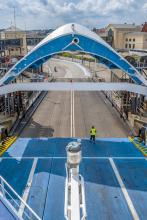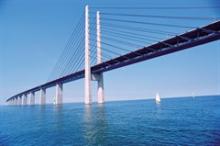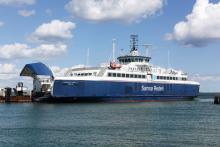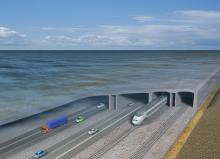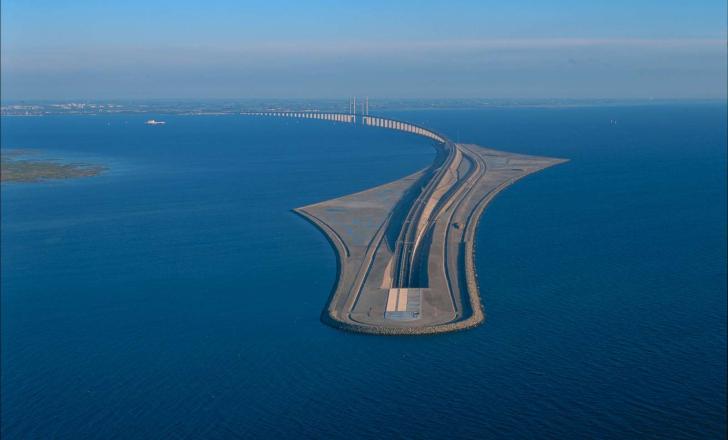
The road and rail crossing as envisaged by the Democratic Union Party would cost close to €23 billion. It would run between the Irish town of Larne in County Antrim and the Dumfries and Galloway coastline in Scotland.
The DUP said in its manifesto for the 2015 UK general election that there should be a feasibility study into building a bridge or tunnel.
The party again suggested that a link be constructed after recent remarks by the UK’s foreign secretary Boris Johnson called for a cross-Channel bridge between England and France during a visit by French president Macron to London.
Alan Dunlop, one of Scotland’s leading urban architects, has been a staunch backer of a crossing. He was recently interviewed on a BBC Scotland radio programme where he again suggested it would bring “exceptional” business potential to Scotland as well as all Ireland.
Dunlop, who is also a professor of architecture at the UK’s Liverpool University, told The Times newspaper that a bridge could create a “Celtic powerhouse”.
However, a road bridge-tunnel might prove too costly and difficult to build, according to Ronnie Hunter of the UK’s
“There are numerous bridges in North America built across relatively shallow water which go on as causeways for mile after mile. But we’re not talking about shallow water here - this is essentially next to the Atlantic Ocean, in very deep water,” he reportedly said. “The length suits a tunnel. It would likely have to be a rail tunnel, rather than a road tunnel, as it is hard to get the ventilation right.”
Even so, speculation has focused on a design similar to the rail and road one connecting Denmark and Sweden across the Oresund Strait. The bridge runs for 8km and the tunnel for 4km.
But any Ireland-Scotland crossing would have to navigate Beaufort’s Dyke, a deep sea trench around 10km off the Scottish coast. Apart from its 300m depth, the trench was used as a dumping ground for unwanted conventional and chemical munitions after the end of the Second World War in 1945.

